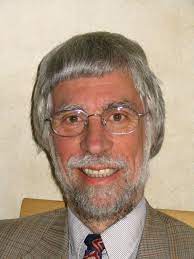
Raymond Bishop
Distinguished Visiting Professor, CQuERE
Raymond Bishop is Professor of Theoretical Physics at the University of Manchester, UK. His main field of research has been microscopic quantum many-body theory and its applications to systems in nuclear physics, subnuclear physics and quantum field theory, condensed matter physics, quantum fluids and ultra-dense matter, statistical physics, and quantum information theory. He has authored about 250 refereed publications in these fields. He is particularly well known internationally for his pioneering work in developing and applying the coupled cluster method to the point where it is now widely acknowledged as providing one of the most pervasive (possibly the most pervasive), most powerful, and most successful of all fully microscopic formulations of quantum many-body theory. It has been applied to more systems in quantum field theory, quantum chemistry, nuclear, subnuclear, condensed matter and other areas of physics than any other competing method. It has yielded numerical results which are among the most accurate available for an incredibly wide range of both finite and extended systems on either a spatial continuum or a regular discrete lattice. The application of the coupled cluster method to strongly correlated low-dimensional quantum magnets and other modern materials is a major direction of his current research work. In 2005 he was awarded the Eugene Feenberg Memorial Prize in Many-Body Physics, the premier international award in his field of research, with a citation that reads “for his development of the coupled-cluster method toward a comprehensive ab initio approach, and innovative applications across the full spectrum of subfields of quantum many-body physics.”
Professor Bishop received his physics training on both sides of the Atlantic. After gaining a First Class BA Honours Degree from the University of Oxford, where he held an Open Scholarship at The Queen’s College, he went to USA with both a NATO Scholarship and a Fulbright Fellowship. After receiving his PhD from Stanford University he returned to the UK for a further five years, during which time he held joint positions in the Department of Physics at Manchester University and the Theory Division at Daresbury Laboratory. He then moved back to USA to take up joint positions in the Department of Physics at the University of California at Berkeley and the Nuclear Science Division at Lawrence Berkeley Laboratory. From there he returned to the University of Manchester Institute of Science and Technology (UMIST) where he occupied the Chair in Theoretical Physics and during which time he served as Head of both the Department of Mathematics and the Department of Physics.
Professor Bishop is a Fellow of both the UK Institute of Physics and the UK Institute of Mathematics and Its Applications. He serves as a member of the Scientific Advisory Committees for a number of leading research institutes throughout Europe, and has served on the scientific organizing committees for more than 25 major international conferences. He has sat on committees of both the UK Institute of Physics and the American Physical Society. The latter body has also elected him as a Fellow, with a citation that reads “for pioneering development of the coupled-cluster method and its innovative application across the full spectrum of subfields of physics, as well as for his leadership of the international community of many-body theorists.”
For personal webpage see here
For a full CV see here
For a full list of publications see here
For a full list of my research interests see here